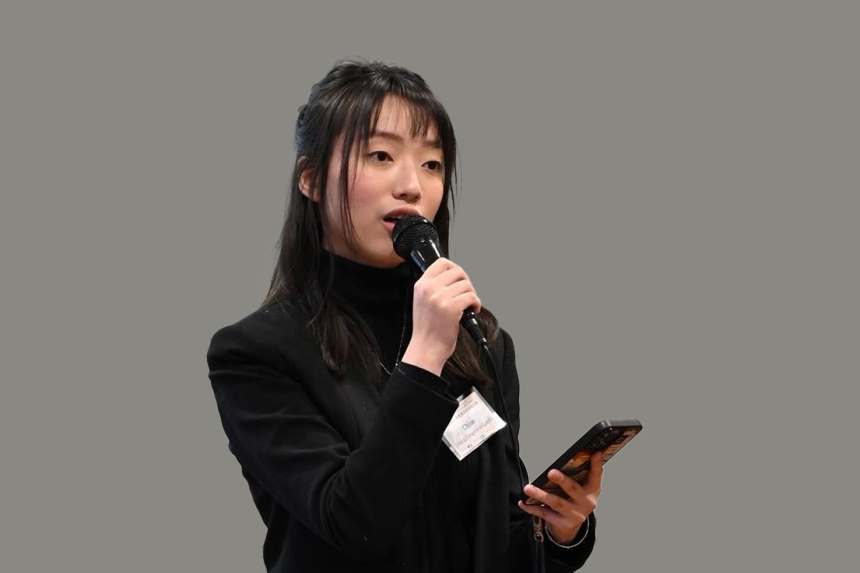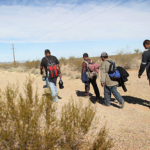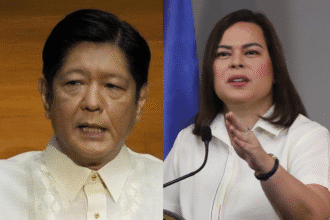Just over a year ago, Chloe Cheung was sitting for her A-levels. Now, she finds herself on a Chinese government list of wanted dissidents, with a bounty of HK$1 million ($100,000; £105,000) for information leading to her apprehension abroad. At just 19 years old, residing in London, Chloe is part of a group of 19 Hong Kong dissidents accused of breaching Hong Kong’s national security law, a regulation implemented by Beijing in reaction to major pro-democracy rallies that began five years ago.
- Why Did Chloe Become a Democracy Activist?
- How Did Chloe's Activism Escalate?
- How Did Chloe End Up in the UK?
- Why Did Chloe Never Expect to Be a Target of the Chinese Government?
- What Does This Mean for Hong Kongers Abroad?
- How Is the UK Responding to These Threats?
- Does Chloe Fear for Her Safety in the UK?
Chloe’s journey into activism and the consequences she now faces were not anticipated. “I actually just wanted to take a gap year after school,” she stated to me. “But I’ve ended up with a bounty!”
Why Did Chloe Become a Democracy Activist?
Chloe and her family relocated to the UK in 2021 under a unique Hong Kong immigration program. She is currently among the youngest people on this list of dissidents. She feels she might never be able to go back to Hong Kong because of the new national security law, which makes her cautious about where she goes.
Chloe had always taken for granted her liberties, growing up in a city that was a distinctive fusion of China and the West. “Politics were never in my life before,” she remarks, recalling her initial participation in the pro-democracy demonstrations in Hong Kong in 2019. Large crowds gathered at the time to oppose a contentious bill that was perceived as expanding China’s power over the area, which had maintained some degree of autonomy since Britain handed it back to it in 1997.
“My friends and I went to the first protest with curiosity,” she relates. “I was shocked by what I saw – police tear-gassing protesters, and an officer stepping on a protester’s neck.”
Chloe came to the realization that Hong Kong had changed from what she had known. She had thought as a teenager that Hong Kong residents might openly express their thoughts and influence the city’s development. She realized that the Hong Kong she knew was quickly vanishing after witnessing the brutality at the protests.
How Did Chloe's Activism Escalate?
At first, Chloe kept her parents out of her advocacy. “I didn’t tell them at the time because they didn’t care about politics,” she says. But as things got out of hand, she persuaded them to march with her. They were forced to escape into the subway as the police used tear gas on them during this protest, giving them a direct look at the brutal realities of the crackdown. “My parents got the raw experience,” she continues, “not the version they saw on TV blaming the protesters.”
The National Security Law, which China passed in 2020 and drastically curtailed Hong Kong’s liberties, marked a watershed. Free speech and political gatherings were outlawed. People who were critical of the administration were prosecuted, and statues and independent newspapers that represented democracy were demolished. Chloe’s advocacy became more concentrated after this, and it was impossible to deny her participation in criticizing the Chinese government.
How Did Chloe End Up in the UK?
The UK launched a unique immigration program for Hong Kong residents known as the British National Overseas (BNO) visa as Beijing’s crackdown grew more severe. One of the first families to seize this chance was Chloe’s. After settling in Leeds, they discovered a reasonably priced Airbnb. Chloe had a lot of difficulties adjusting to a new nation. In the midst of a pandemic lockdown, she had to finish her GCSEs halfway through the academic year.
Chloe first battled feelings of loneliness. As she tried to get better in English, she encountered language difficulties and had trouble making friends. She had to get used to living in a totally different setting because there weren’t many other Hong Kongers in the vicinity. She quickly secured a position with the pro-democracy NGO, the Committee for Freedom in Hong Kong Foundation, where she carried on her activities.
Why Did Chloe Never Expect to Be a Target of the Chinese Government?
By 2023, China began targeting more dissidents, putting bounties on prominent protest leaders and opposition politicians. At the time, Chloe was still finishing her A-levels and believed she was too small a figure to ever become a target. “I thought they wouldn’t bother with me,” she says. But her inclusion on the list of wanted Hong Kong dissidents highlights Beijing’s determination to pursue activists beyond Hong Kong’s borders.
The bounty on Chloe’s head serves not only to intimidate her but also to encourage others to report her activities in the UK. The message is clear: anyone speaking out against Beijing can become a target.
What Does This Mean for Hong Kongers Abroad?
Chloe’s predicament is not unusual. China has made a concerted effort in the last ten years to silence dissidents who have been banished worldwide. Three men were recently accused by British police of breaking into a house and collecting intelligence on behalf of Hong Kong. Later, one of the men was discovered deceased for unknown reasons.
According to Chloe, “they are only interested in Hong Kongers because they want to scare off others.” She claims that a large number of Hong Kong residents in the UK today have opted to keep quiet because they are scared to take chances. Because they don’t want to take chances, the majority of BNO visa holders told me this. Although it’s sad, we can’t hold them responsible.
How Is the UK Responding to These Threats?
UK Foreign Secretary David Lammy denounced any attempts by foreign governments to harass or intimidate critics in the UK on the day that Chloe’s arrest order was issued. He confirmed that Hong Kong residents would continue to get assistance from the British government.
But Chloe is still worried. She fears that the UK’s dedication to defending Hong Kong dissidents may be weakened by its expanding commercial connections with China. “We just don’t know what will happen to us,” she continues. “If they really want to protect their trade relationship with China, I don’t know if they’ll protect us.”
Does Chloe Fear for Her Safety in the UK?
When asked whether she feels scared on the streets of London, Chloe is quick to compare her situation to that of activists back in Hong Kong. “It’s not as bad as what they face there,” she says. “When I think of what they face… it’s actually not that big a deal that I got a bounty overseas.”
Chloe’s story underscores the high price of standing up for democracy and freedom in the face of a powerful and repressive government. While she navigates life in exile, her voice continues to be an important one for Hong Kongers both at home and abroad.








